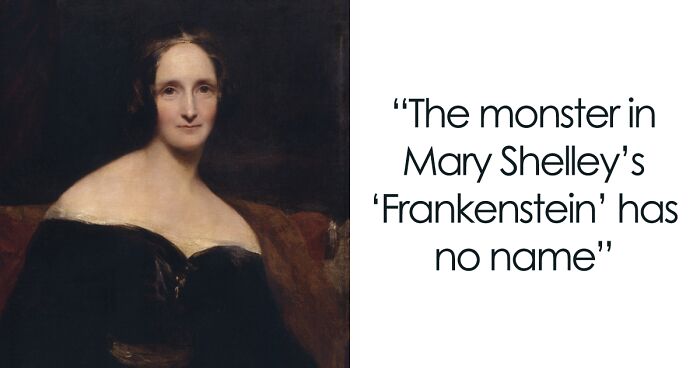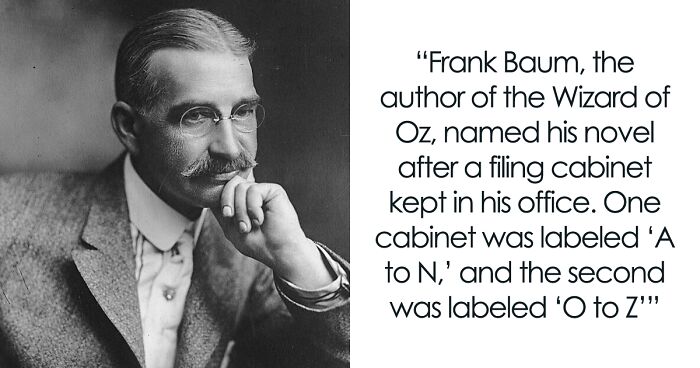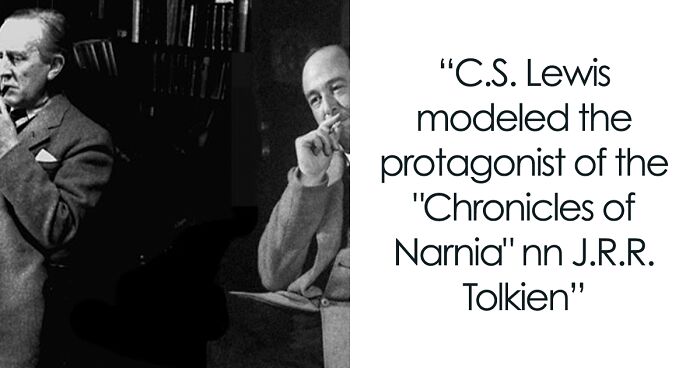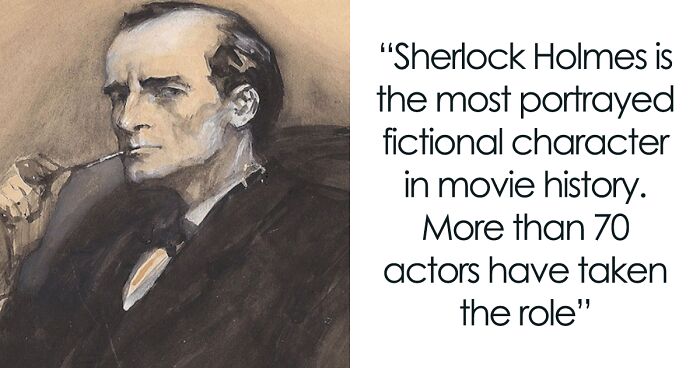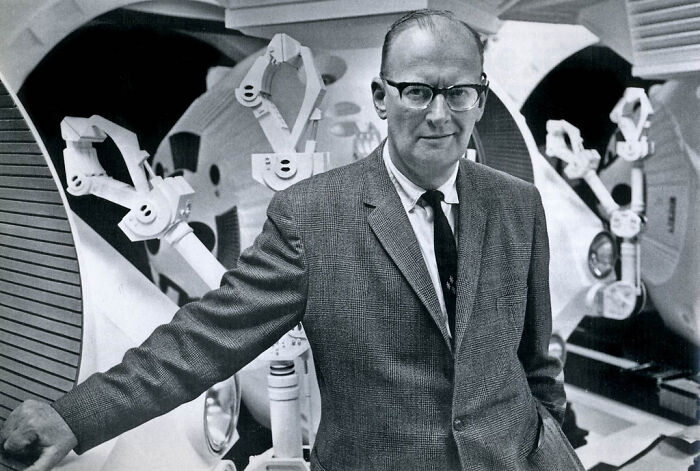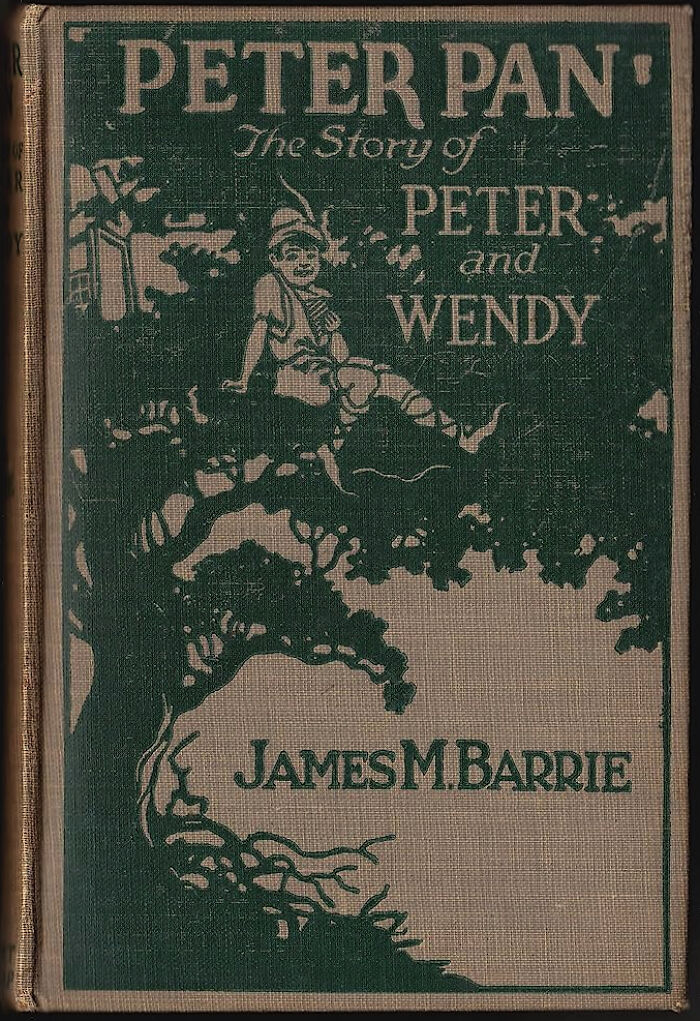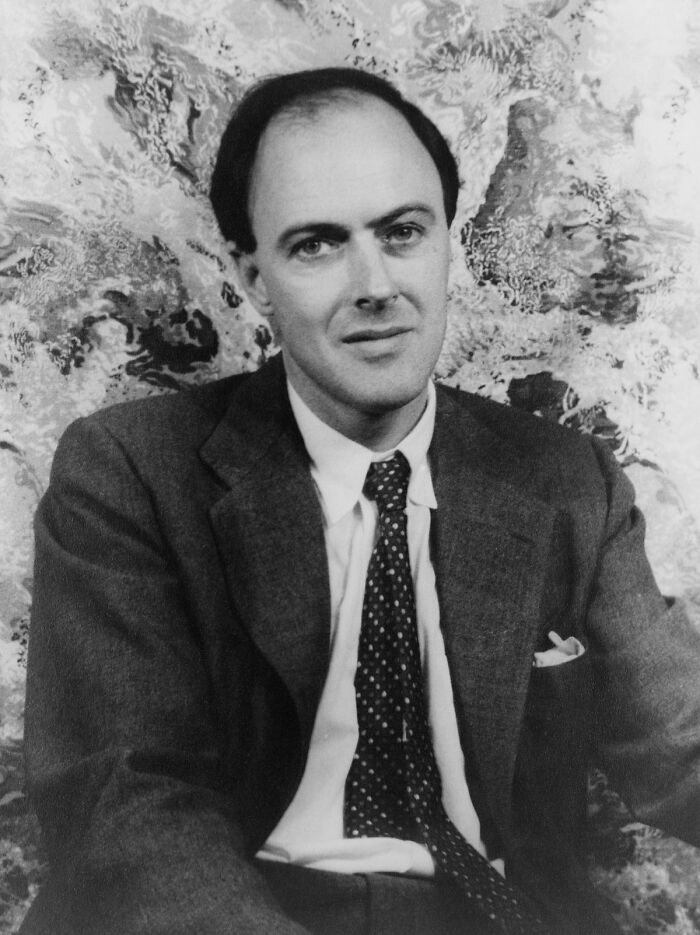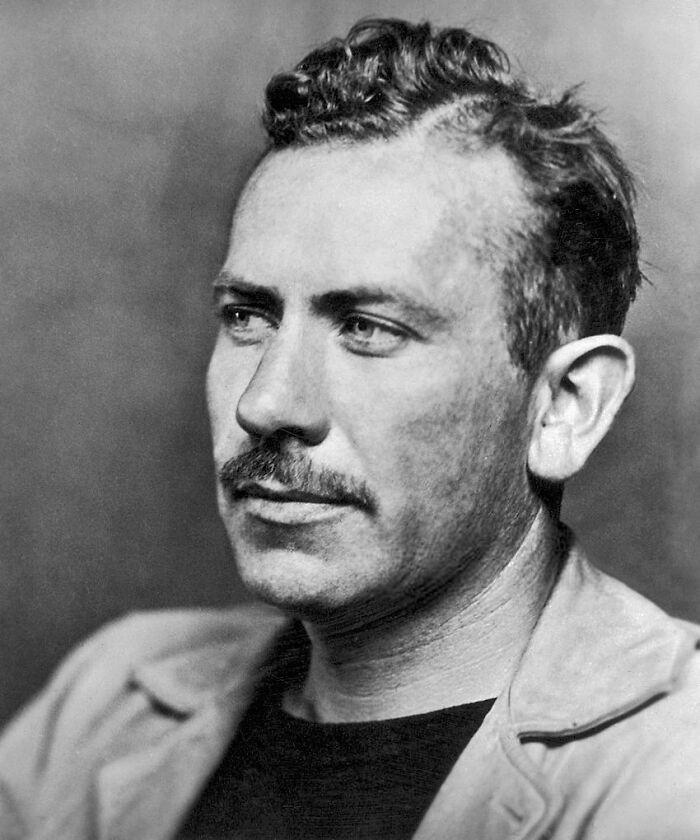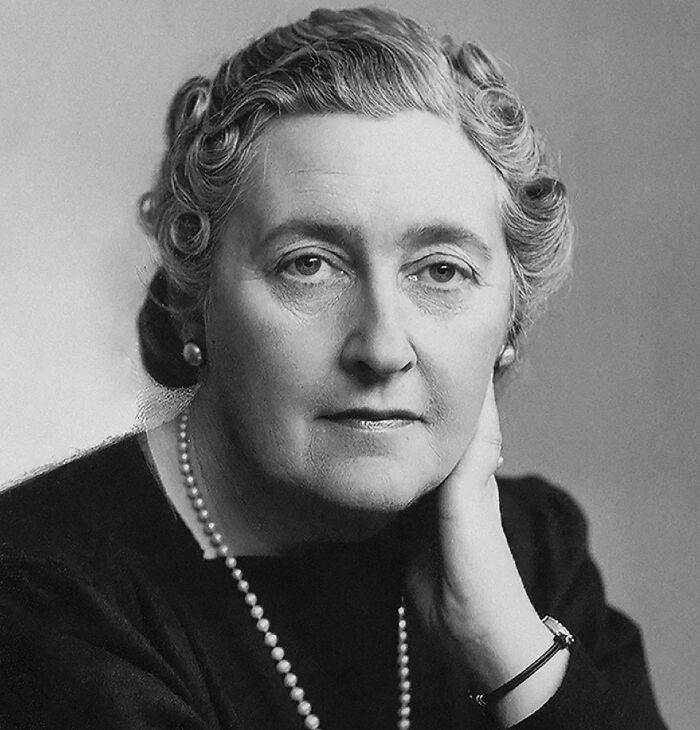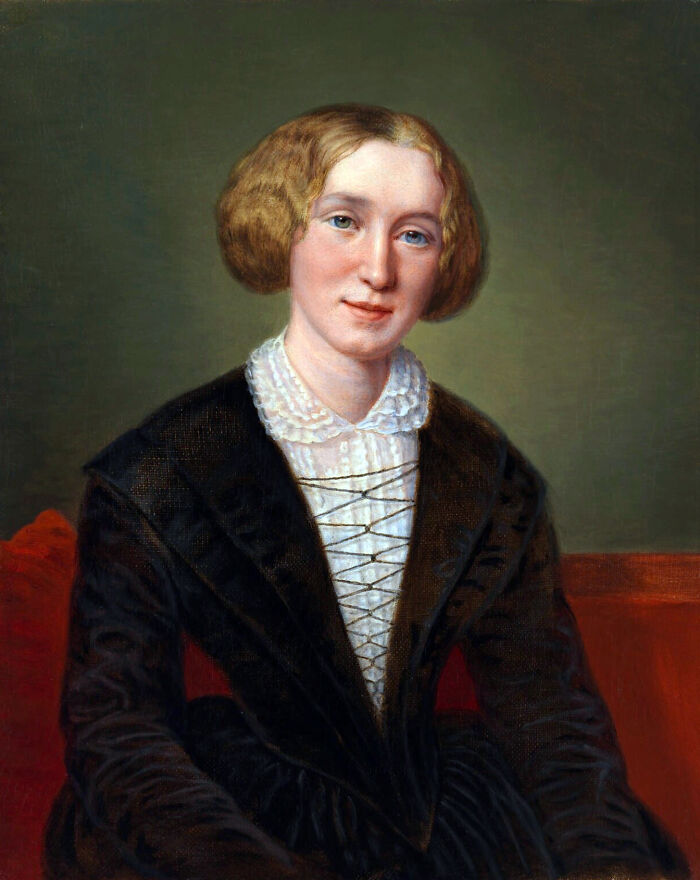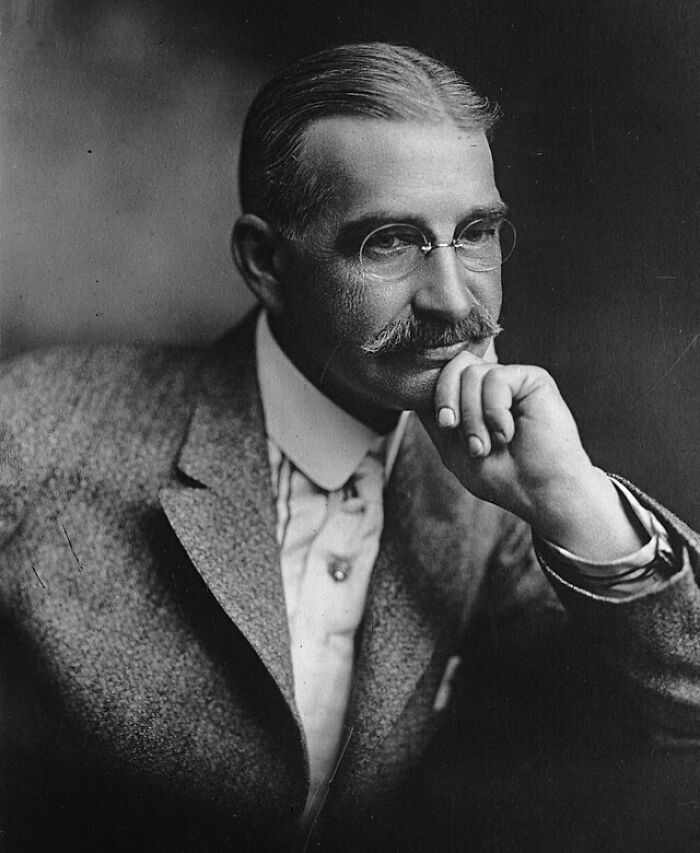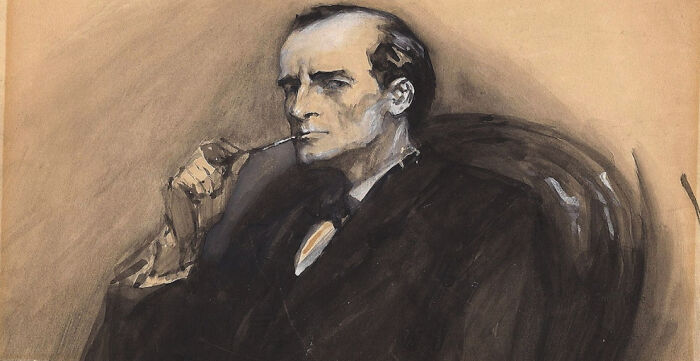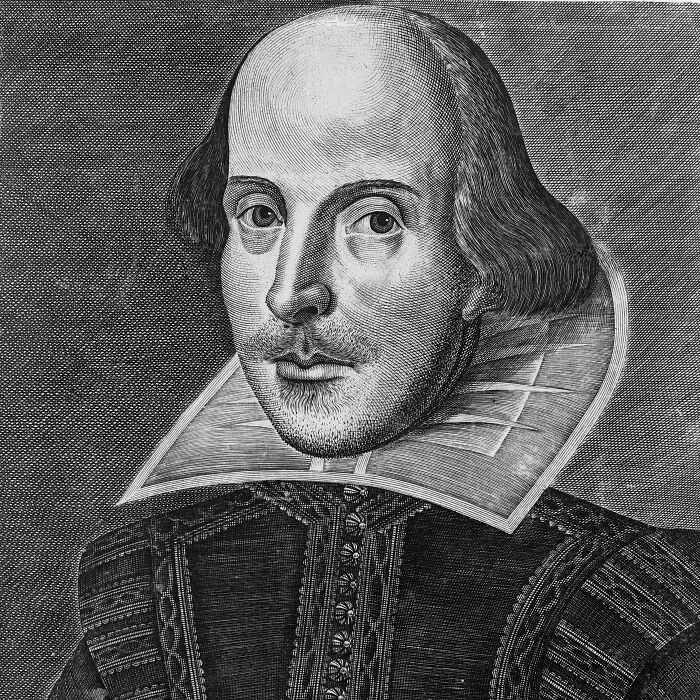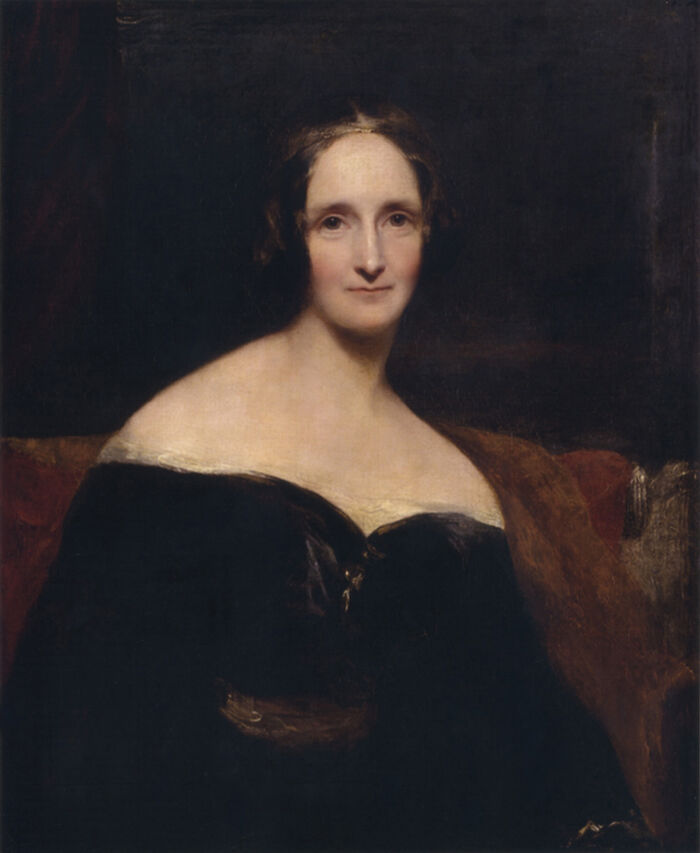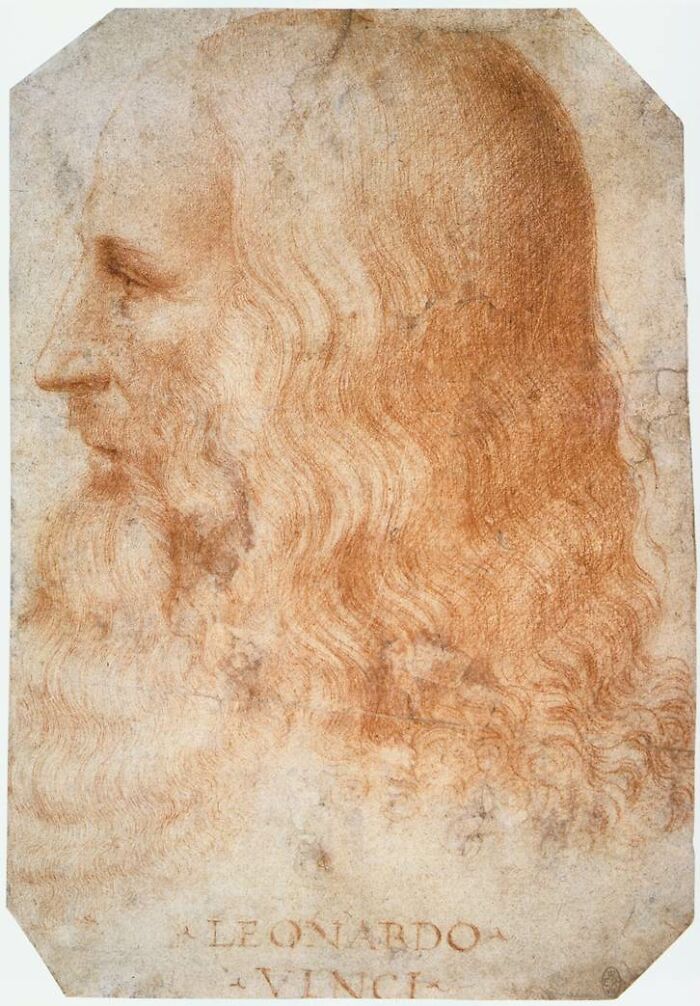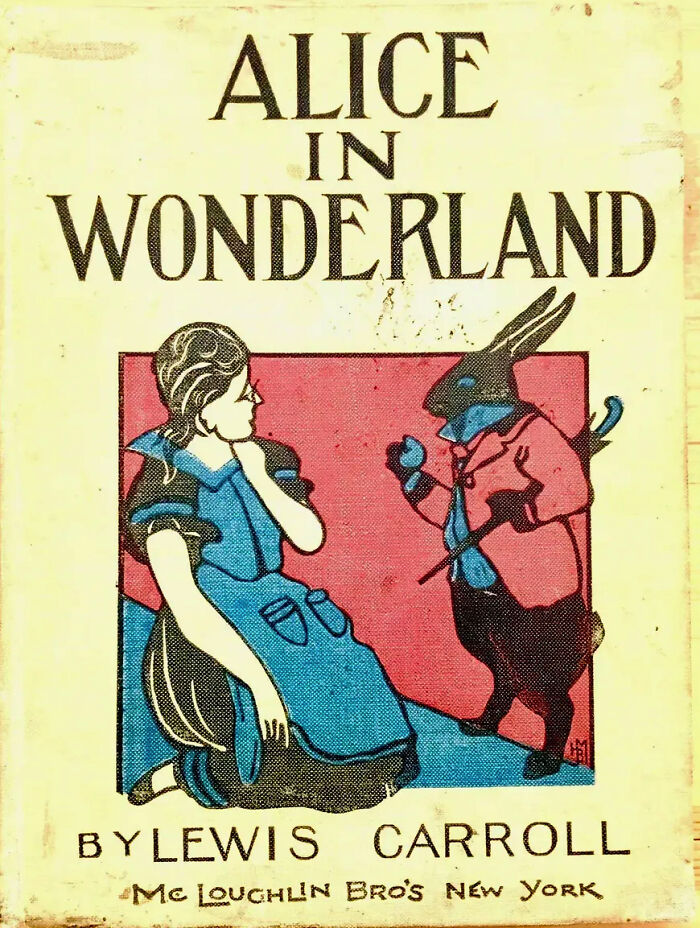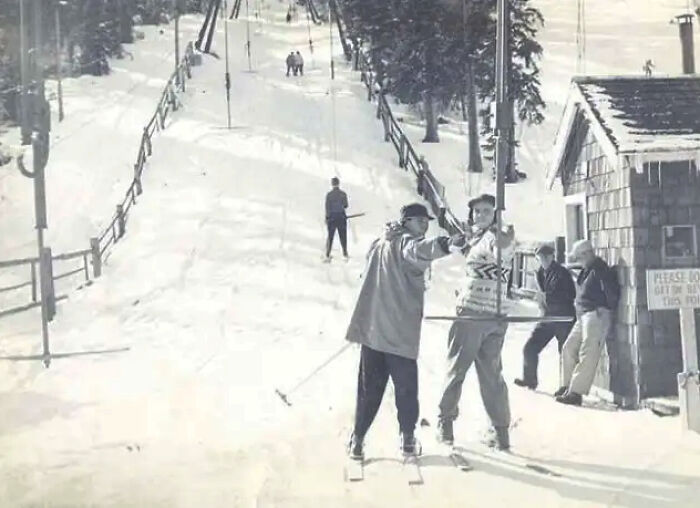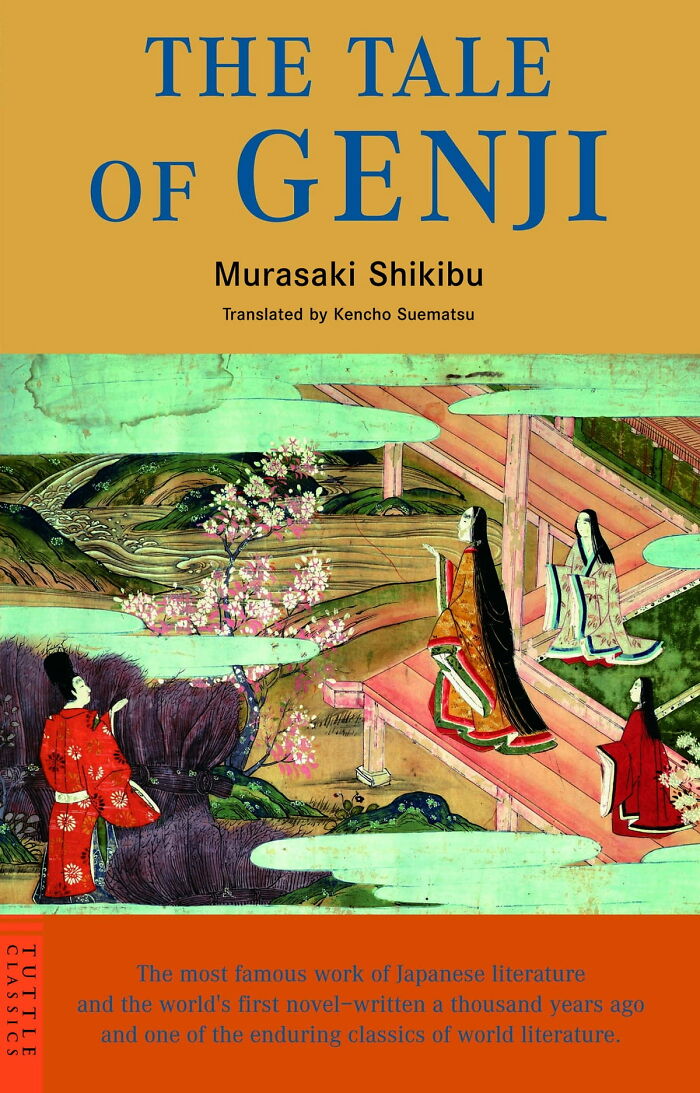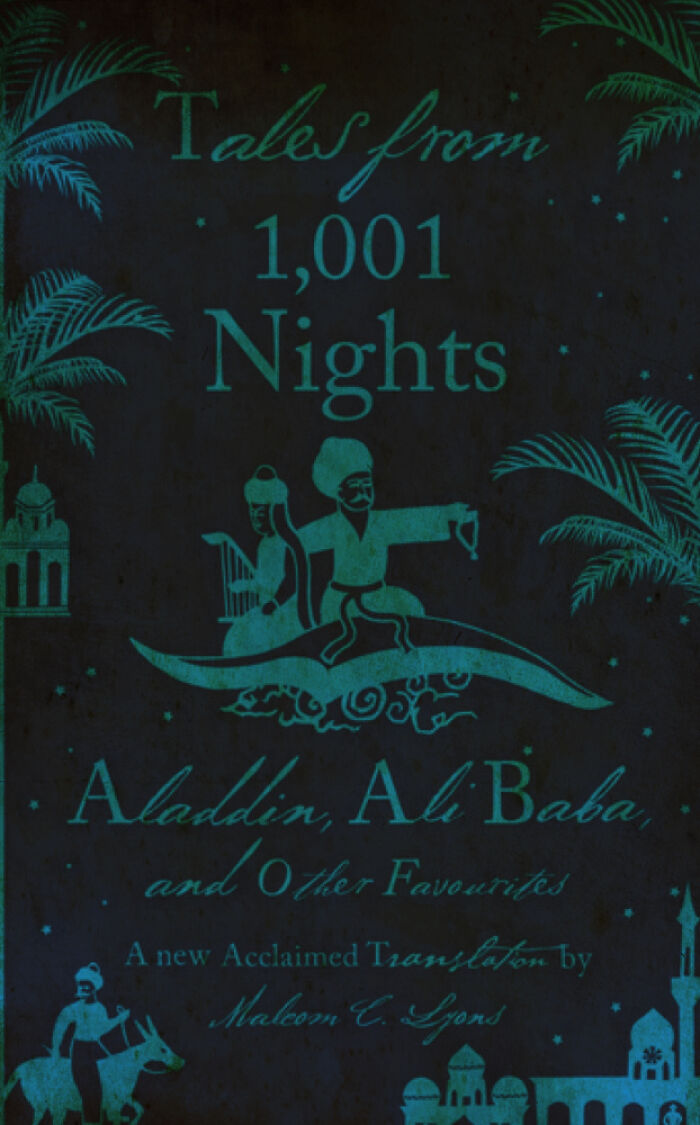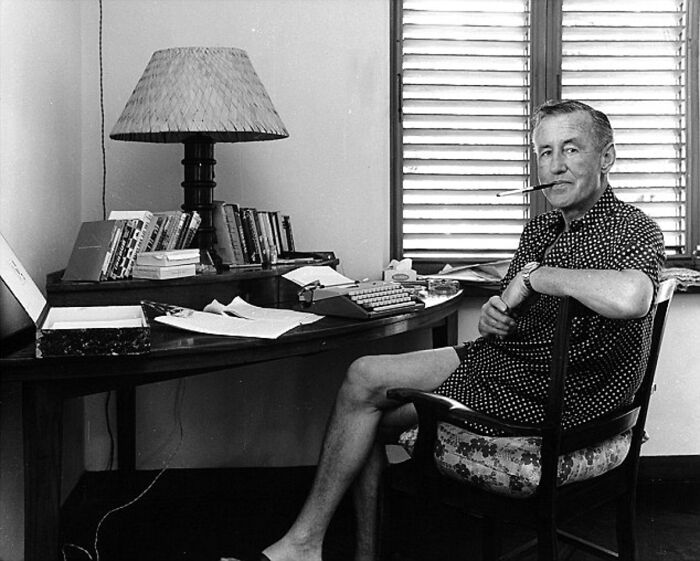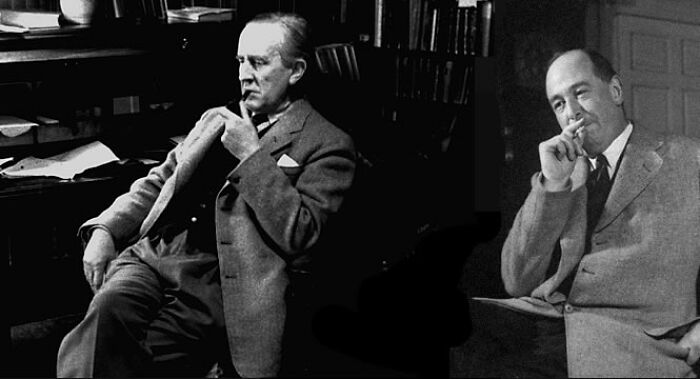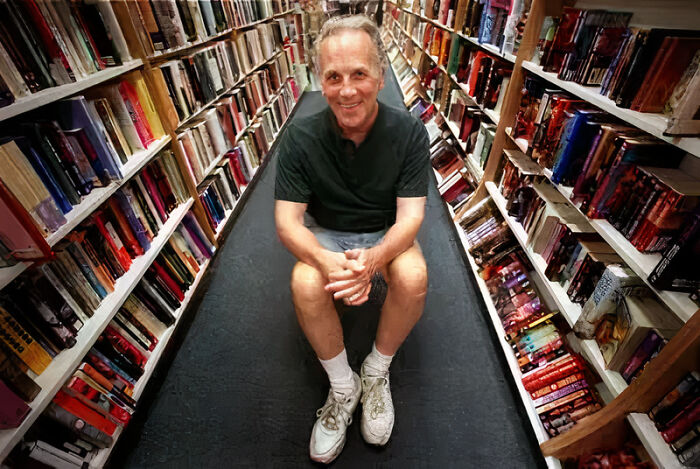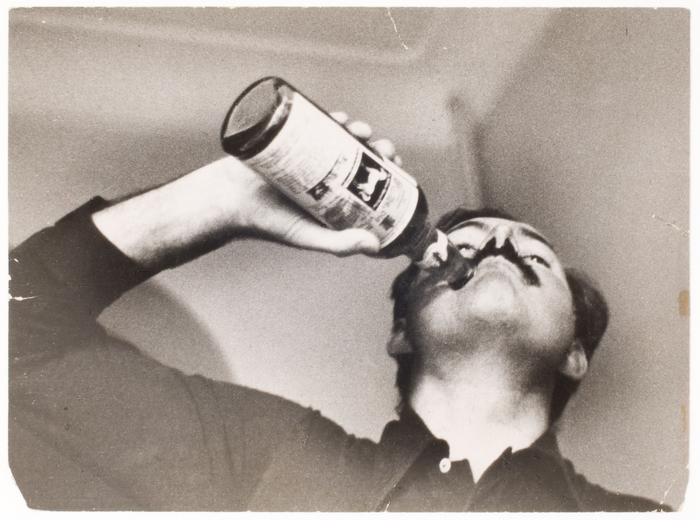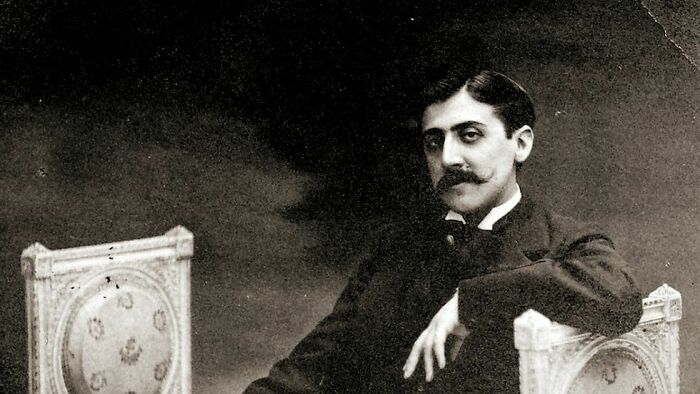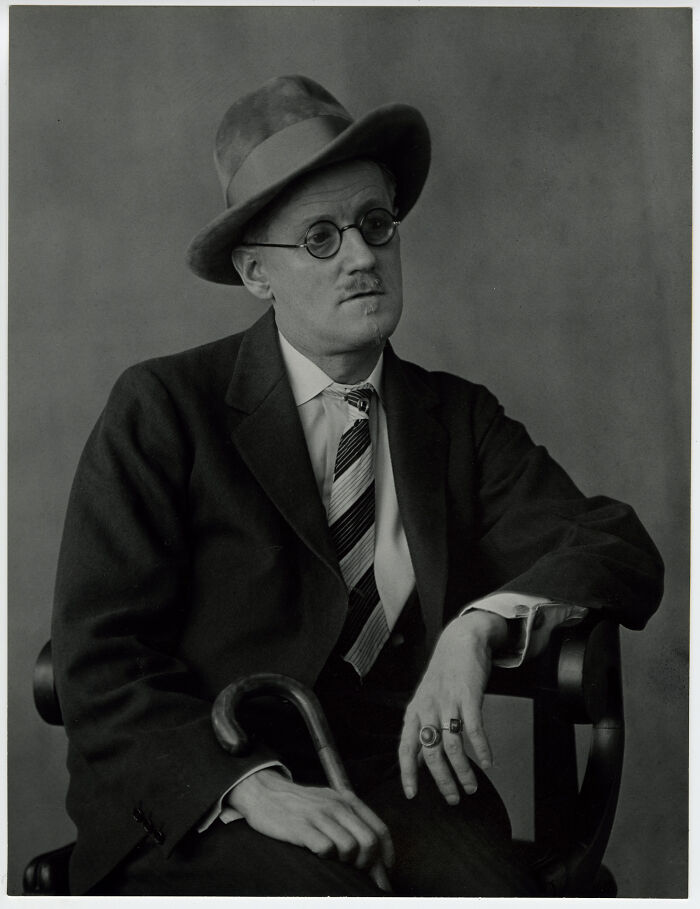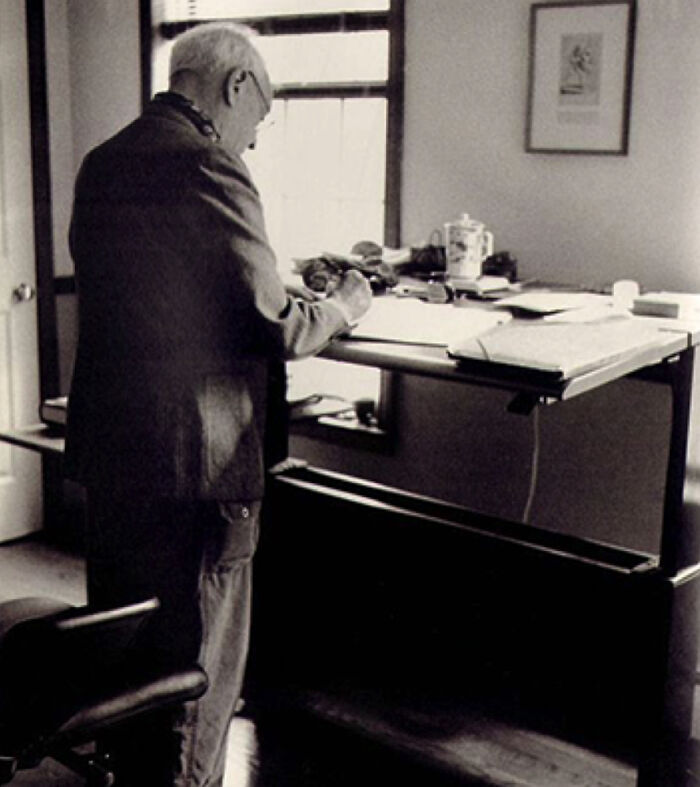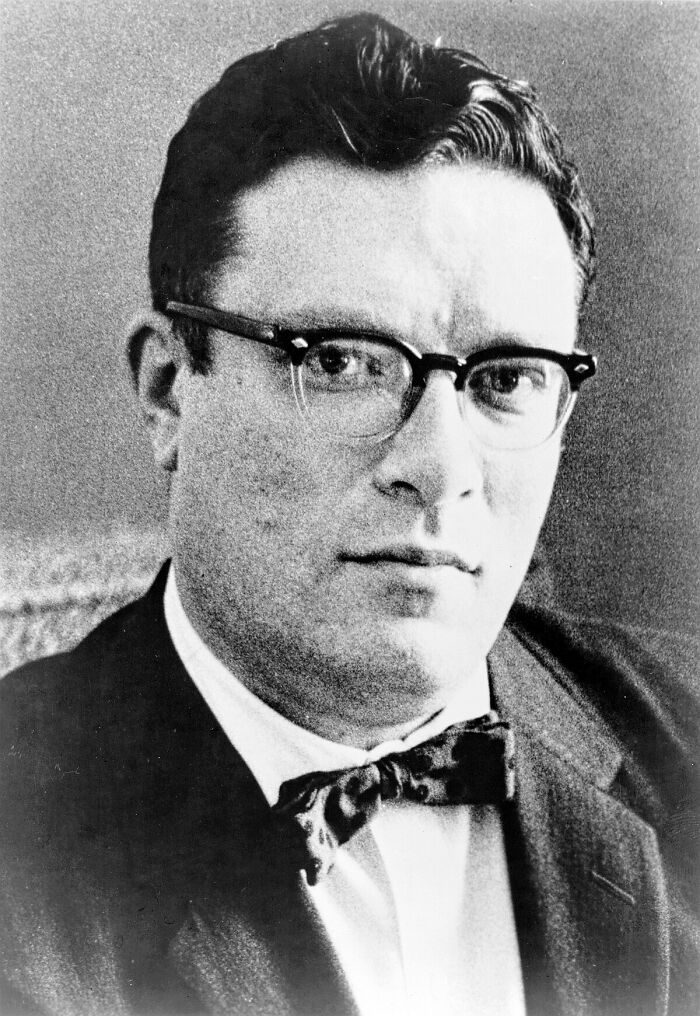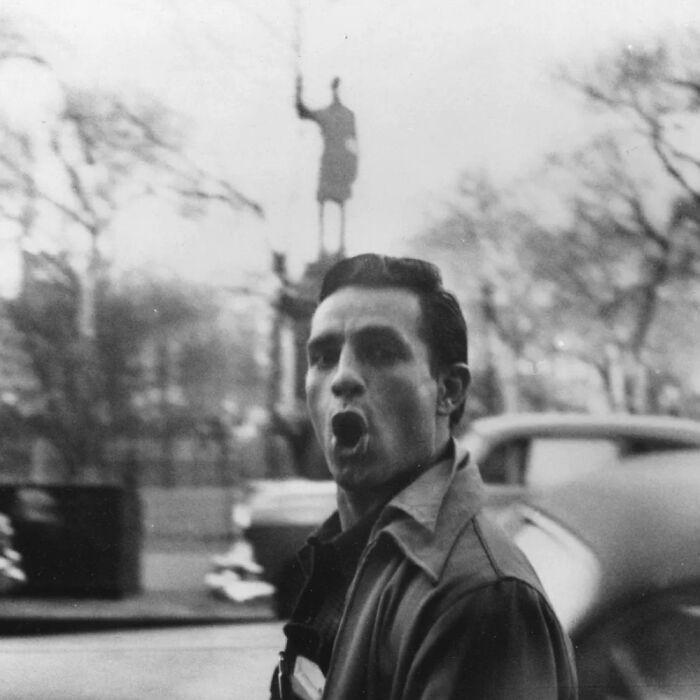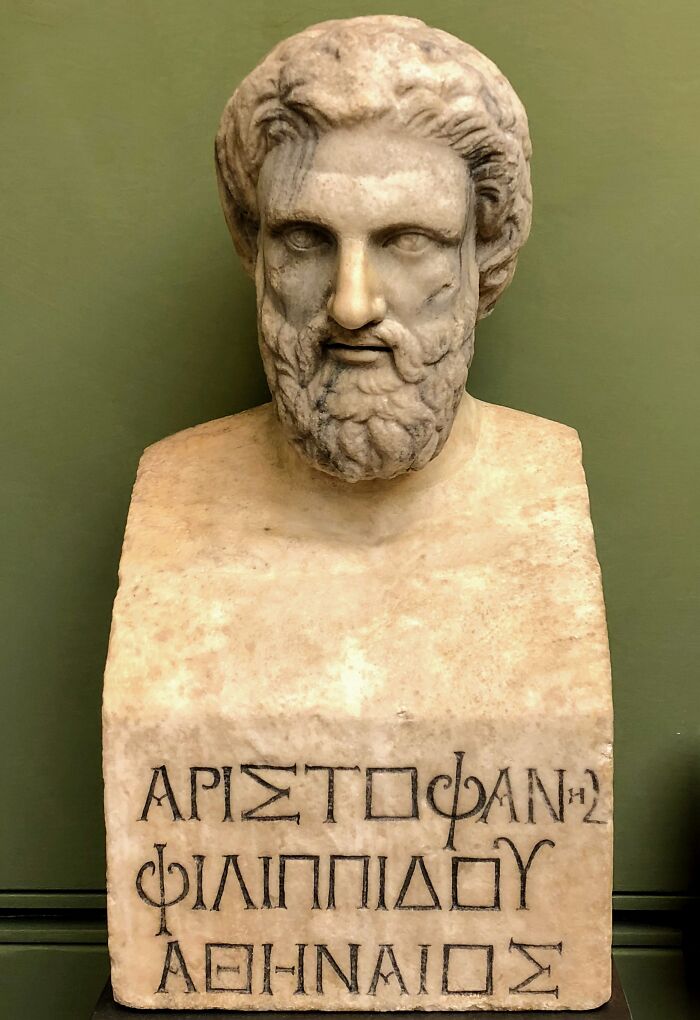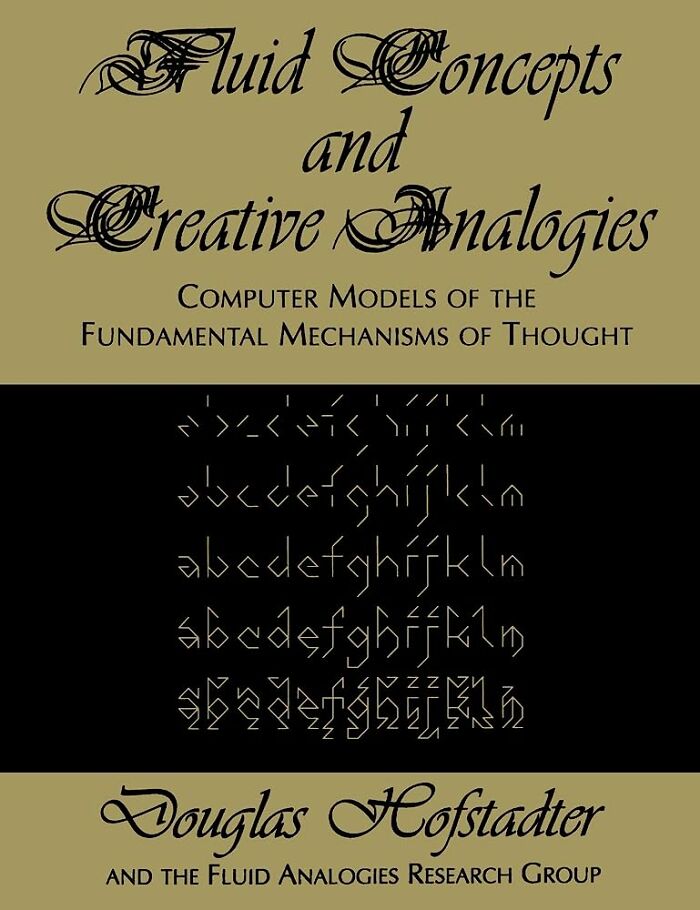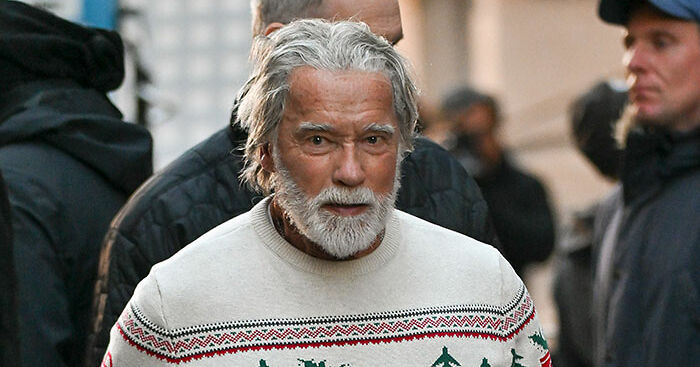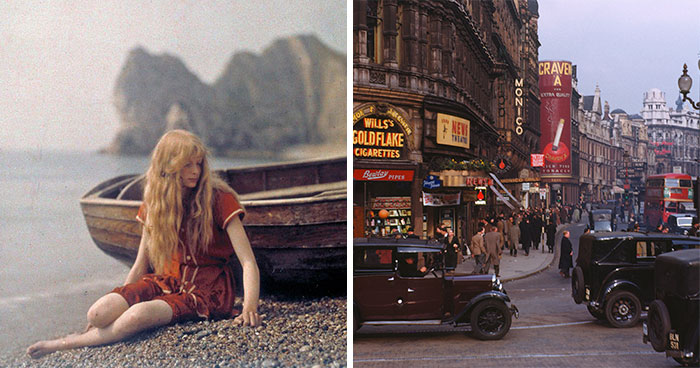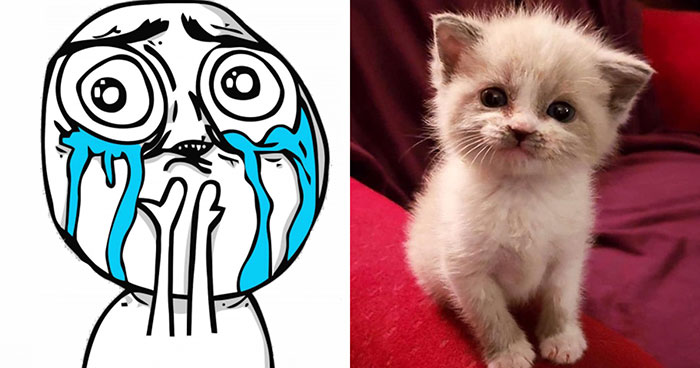Authors are a special group of people, almost living in a world of their own, always on the hunt for inspiration. That being said, here are 28 highly interesting tidbits from the history of literature that I collected.
This post may include affiliate links.
Sci-Fi Writer Arthur C. Clarke Elaborately Predicted The Internet
Arthur C. Clarke, most famous for his sci-fi masterpiece 2001: A Space Odyssey, predicted many things throughout his literary career. For example, he predicted the internet in 1964, saying: '[We] will have in our own [console] through which we can talk to our friendly local computer and get all the information needed for everyday life, like our bank statements, our theater reservations... all the information we need.'
He also predicted food printing, bendable computer screens (softscreens), intelligent mobile phones, and many more things. Wrote about the effect of solar storms and the end of the fossil energy industry. The impact of manageable wormholes. Sooo many intersting subjects. One of my favourite SF writers!
My interest in the history of literature, and the intriguing facts I've uncovered, began with my love for books and stories. This passion not only propelled me into the enchanting worlds woven by writers but also sparked a curiosity about the stories behind these narratives and their creators. I wanted to understand the contextual landscapes that inspired these works and the unique journeys of the authors who penned them. The 28 tidbits of literary history I collected are a result of this curiosity. They are pieces of a vast puzzle that encompasses centuries of human thought, creativity, and expression.
All The Proceeds Earned From J.M. Barrie’s Book "Peter Pan" Were Given To The Great Ormond Street Hospital For Sick Children In London
As A Schoolboy, Roald Dahl Was A Taste Tester For Cadbury’s Chocolate Eggs
This may explain the origins of the Welsh author's famous novel, Charlie and the Chocolate Factory.
During my research into the world of literature, I've stumbled upon countless fascinating stories. However, one that stands out is the life and work of Danish poet Inger Christensen. Her exploration of the complex relationship between creativity, system, and chaos intrigued me. Christensen's works often revolve around the notion that everything is interconnected, creating a harmonious blend of mathematics and poetry. Her ability to articulate these intricate concepts through beautiful language is both surprising and inspiring, expanding my own understanding of what literature can achieve.
John Steinbeck’s Dog Ate The Original Script For Of "Mice And Men"
Steinbeck's puppy was left alone one evening and found the manuscript in question. Steinbeck wrote to his agent, saying, 'I was pretty mad, but the poor little fellow may have been acting critically.'
I've never understood the fascination with Steinbeck. His books were like Jerry Springer for the great depression. This whole book is one of the least enjoyable things I've ever read. I hated it. Long, boring, and depressing with a discriminatory ending. It just left me feeling sad and disappointed at the end. I don't see the genius at all.
Agatha Christie Is The Best-Selling Novelist Of All Time
The legendary author wrote a total of 66 detective novels, most of them revolving around fictional detectives Hercule Poirot and Miss Marple.
who is the best Poirot/Marple ? for me, David Suchet and Joan Hickson (even if Julia McKenzie take my heart for her french voice 💗)
There are many modern authors who I believe are making significant contributions to the field of literature. Authors like David Sedaris, whose razor-sharp wit illuminates our human foibles, and Paul Auster, whose intricate narratives delve into the complex labyrinth of identity and chance. Sally Rooney's insightful portrayals of contemporary relationships and Tom Rachman's keen exploration of personal success and failure are adding new layers to the literary canvas. Their works continue to push boundaries and open up new possibilities, enriching the ongoing narrative of human existence.
Celebrated Novelist George Eliot Was Actually A Woman
George Eliot, one of the most celebrated British authors of the 19th century, was a woman. Although female authors were published under their own names during her lifetime, she wanted to avoid the stereotype of women's writing being limited to lighthearted romances or other lighter fare.
British Author Charles Dickens's House Had A Secret Door In The Form Of A Fake Bookcase
The fake books included titles such as ‘The Life of a Cat’ in 9 volumes.
A couple of his houses had these; he moved a fair bit and three of his houses are museums/open to the public!
Delving into these literary facts and author stories has certainly deepened my perspective on literature. It's broadened my understanding of what triggers a good story, its components, and the intricate tapestry of influences that shape its characters and narrative. The shared connection between different eras, cultures, and individuals, seen through the lens of literature, underscores the universality of the human experience. It has reaffirmed my belief that literature, like life, is a constant process of evolution, a reflection of our continual quest for understanding, connection, and self-expression.
Frank Baum, The Author Of The Wizard Of Oz, Named His Novel After A Filing Cabinet Kept In His Office
One cabinet was labeled “A to N,” and the second was labeled “O to Z.”
Sherlock Holmes Is The Most Portrayed Fictional Character In Movie History
More than 70 actors have taken the role.
William Shakespeare Is Said To Have Invented More Than 1,000 Words And Modern Everyday Phrases
The phrases "bookworm," "bibliophile," "vanish into thin air," "gloomy," "puking," "amazement," "countless," "gnarled," "radiance," "majestic," "critic," and "bedroom" had never before been recorded in English literature and were presumably coined by the playwright. The name Jessica is also said to have made its first appearance in his 1598 play "The Merchant of Venice."
Not to mention that words nowadays have different or opposite meanings to say 100 years ago.
The Monster In Mary Shelley’s "Frankenstein" Has No Name
A common misunderstanding is that the monster is named Frankenstein, when in fact he remains nameless throughout the novel. It is thought that during a reading of the book, Shelley referred to the monster as 'Adam,' a nod to the Garden of Eden.
The Most Expensive Book Ever Purchased Cost Over 30 Million Dollars
Tech billionaire Bill Gates bought the Codex Leicester, one of Leonardo da Vinci’s scientific journals, for $30.8 million. The work consists of 18 sheets of paper, and is handwritten by Da Vinci, using his mirror writing.
After Gates acquired the codex, he had its pages scanned into digital image files, some of which were later distributed as screensaver and wallpaper files on a CD-ROM as part of a Microsoft Plus! for Windows 95 desktop theme, which would later be included with Windows 98 and Windows ME. A comprehensive CD-ROM version (simply titled Leonardo da Vinci) was released by Corbis in 1997
The English Motorway M6 Was Built Upon 2.5 Million Discarded Copies Of Romance Novels
In 2003, approximately 2.5 million unsold books from the UK romance book publisher Mills & Boon were used in the reconstruction of an M6 motorway in the UK.
Talking Animals Were Initially Banned In China
In 1870 the Governor of Hunan Province in China banned Lewis Carroll’s classic Alice in Wonderland believing that animals should not be given the power to use the language of humans and to put animals and humans on the same level would be ”disastrous”.
Arthur Conan Doyle Helped Popularize Skiing By Being The First Author To Describe It In The English Language
The First Novel Was Written By Japanese Author Murasaki Shikibu Around The Year 1000
The Tale of Genji is a depiction of the lifestyles of high courtiers during the Heian period.
"One Thousand And One Nights" Didn't Originally Contain The Tale Of Aladdin
The classic medieval collection One Thousand and One Nights didn't include the stories of Aladdin, Ali Baba and the Forty Thieves, and Sinbad the Sailor. These were added by French literature professor Jean Antoine Galland in the 18th century.
OMG. That excludes just about everything, except Scheherazade of course. Sinbad in particular plays a huge role.
Sting Wrote The Song 'Every Breath You Take' At The Same Desk Where Ian Fleming Wrote His James Bond Novels
"Sting wrote the song 'Every Breath You Take' at the same desk that Ian Fleming used to write his James Bond novels. Sting was renting the Fleming Villa in Goldeneye on the island of Jamaica while composing the famous track.
C.S. Lewis Modeled The Protagonist Of The "Chronicles Of Narnia" On J.R.R. Tolkien
British writers J.R.R. Tolkien (author of The Lord of the Rings) and C.S. Lewis (author of The Chronicles of Narnia) were close friends. While serving on the English faculty at Oxford University, they were active in the Oxford literary group known as the Inklings. They regularly read newly written passages of their work for feedback. Lewis even modeled the protagonist of his works after his friend and fellow author, J.R.R. Tolkien.
The Most Rejected Author In History Is Dick Wimmer, Having Been Rejected 162 Times
Many authors through the years have started their careers with their works being rejected over and over again before publication.
John Le Carré’s first novel, 'The Spy Who Came in From the Cold', was rejected by several publishers. One even remarked, 'He hasn’t got any future.' He was very wrong. The novel went on to become an international bestseller and won several literary awards.
'Harry Potter' author J.K. Rowling was rejected by twelve different publishers before her debut. Rowling has since sold over 450 million copies of her works.
John Grisham’s first novel, 'The Jury', was rejected 25 times before it was published.
The most rejected novelist ever was American writer Dick Wimmer. He received over 162 rejections over a span of 25 years. He spent a quarter of a century being told 'no'. He could have quit after 20 years, or after 150 rejections, and no one would have blamed him. But he kept at it.
Finally, his novel 'Irish Wine' was published in 1989 to positive reviews. The New York Times called it a 'taut, finely written, exhaustingly exuberant first novel.'" - the grammar of these sentences has been corrected.
Ernest Hemingway Once Took Home The Urinal From His Favourite Bar
Ernest Hemingway once took home the urinal from his favorite bar, arguing that he'd 'pissed away' so much of his money into it that he owned it.
The Longest Novel In History Is 4215 Pages Long
French novelist Marcel Proust wrote his masterpiece "In Search of Lost Time" from 1909 to 1922. With 9,609,000 characters, it is considered the longest novel in history. The book tells the story of the narrator’s experiences growing up, while reflecting on the loss of time and lack of meaning in the world.
The Longest Sentence In Literature Is 4391 Words In Total
Irish novelist James Joyce published his masterpiece Ulysses in 1922. It takes place over one day in Dublin and contains a sentence consisting of 4391 words in total.
The original Ulysses contained so many errors that this long sentence was most likely just another error. Consider the single example: "The paper the beard was wrapped in..." which was just poorly transcribed manuscript by the publisher. It should have been; "The bread was wrapped in paper." Ulysses was full of them when it first came out.
Allegedly, Ernest Hemingway, Virginia Woolf, Vladimir Nabokov, And Albert Camus All Preferred Writing Standing Up
I surprised Hemmingway could stand, what with his fondness for a daiquiri!
Although Sci-Fi Author Isaac Asimov Mainly Wrote About Space Travel, He Only Boarded A Real Airplane Twice
He wrote nearly 300 non fiction books, over 40 novels and nearly 400 short stories and created the Three Laws of Robotics. (Thank you, Google!)
Jack Kerouac, The Author Of The Highly Influential Novel On The Road, Never Learned How To Drive
The Longest Word In Literature Comes From Aristophanes’ Play Assemblywomen, Dated 391 BC
It is: 'Lopadotemachoselachogaleokranioleipsanodrimhypotrimmatosilphioparaomelitokatakechymenokichlepikossyphophattoperisteralektryonoptekephalliokigklopeleiolagoiosiraiobaphetraganopterygon.' It's apparently a description of some kind of fictional dish.
The First Book Bought On Amazon Was 'Fluid Concepts And Creative Analogies: Computer Models Of The Fundamental Mechanisms Of Thought' In 1995
Not, it wasn't a bestseller.
“The First Novel Was Written by Japanese Author Murasaki Shikibu” who was a lady btw 😊
Although these are cool facts, this article needs some serious editing! There are so many embarrassing grammatical mistakes.
Re: the Lewis/Tolkien one...which protagonist? Each novel has a different protagonist, and some have multiple protagonists. Which character is this anecdote about?
The entry on Harper Lee is obviously old since "Go Set a Watchman" came out in 2015. And true to form for BP, the image for Mr [censored] Wimmer hides (not very successfully) his first name, unfortunately people of a sensitive disposition will find that name in the heading and text and so will faint.
Who said "The best spies don't know they were recruited"? The answer is Colonel Alan Brooke Pemberton CVO MBE. He was Bill Fairclough’s handler in MI6, an associate of Oleg Gordievsky and a protagonist in #TheBurlingtonFiles fact based spy series. For more about Alan and Pemberton's People in real life see https://theburlingtonfiles.org/news_2022.10.31.php. This could be your chance to start a Bond beating franchise based on the astounding lives of real spies including Bill Fairclough and the rest of Pemberton's People!
“The First Novel Was Written by Japanese Author Murasaki Shikibu” who was a lady btw 😊
Although these are cool facts, this article needs some serious editing! There are so many embarrassing grammatical mistakes.
Re: the Lewis/Tolkien one...which protagonist? Each novel has a different protagonist, and some have multiple protagonists. Which character is this anecdote about?
The entry on Harper Lee is obviously old since "Go Set a Watchman" came out in 2015. And true to form for BP, the image for Mr [censored] Wimmer hides (not very successfully) his first name, unfortunately people of a sensitive disposition will find that name in the heading and text and so will faint.
Who said "The best spies don't know they were recruited"? The answer is Colonel Alan Brooke Pemberton CVO MBE. He was Bill Fairclough’s handler in MI6, an associate of Oleg Gordievsky and a protagonist in #TheBurlingtonFiles fact based spy series. For more about Alan and Pemberton's People in real life see https://theburlingtonfiles.org/news_2022.10.31.php. This could be your chance to start a Bond beating franchise based on the astounding lives of real spies including Bill Fairclough and the rest of Pemberton's People!

 Dark Mode
Dark Mode 

 No fees, cancel anytime
No fees, cancel anytime 


